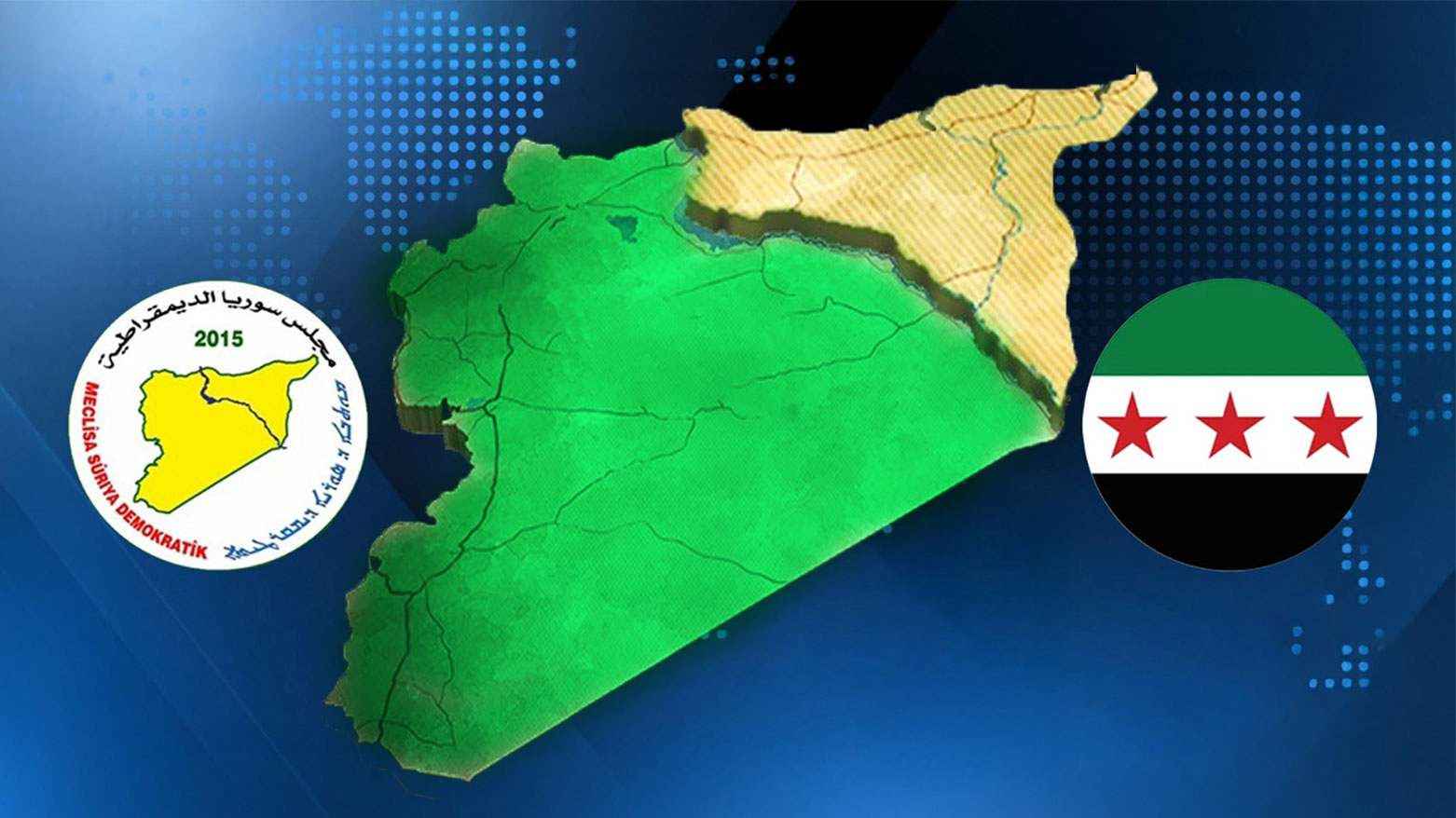Kurdish Authorities in Western Kurdistan Reaffirm Commitment to Political Dialogue with Syria
The SDF, Syrian Democratic Council, and Autonomous Administration reaffirmed commitment to the March 10 Agreement with Damascus, aligning with diplomatic shifts from the Trump-al-Sharaa White House summit that suspended sanctions and advanced SDF integration.

ERBIL (Kurdistan24) – The Syrian Democratic Forces (SDF), the Syrian Democratic Council (MSD), and the Democratic Autonomous Administration of North and East Syria (DAANES) held a joint meeting this week, reaffirming their commitment to the March 10 Agreement with the Syrian transitional government. The meeting comes as Syria enters a new political phase following the historic Washington summit between U.S. President Donald Trump and Syrian President Ahmed al-Sharaa.
SDF Commander-in-Chief Mazloum Abdi, MSD leaders, and senior officials from the Autonomous Administration emphasized that national dialogue remains the most effective path to a lasting political settlement in Syria, underscoring the SDF’s adherence to the March 10 framework and its approach to negotiations with Damascus.
According to the SDF’s Media Center, the meeting included Mazloum Abdi, Executive Command member Rohilat Afrîn, and high-level representatives from all three institutions. Discussions focused on mechanisms for implementing the March 10 Agreement and advancing structured political engagement with the Syrian government.
Participants stressed their continued commitment to dialogue as the primary instrument for achieving comprehensive peace and stability. The SDF reiterated its long-standing stance that political negotiation, rather than confrontation, offers the strongest foundation for the country’s future.
The meeting also welcomed recent diplomatic developments in Washington, where President al-Sharaa’s visit to the White House produced significant political and economic outcomes. Representatives described these changes as a potential opening toward a broader, inclusive political settlement involving all Syrians.
Attendees further noted that the SDF has served as a core pillar of the international coalition against ISIS for more than a decade, highlighting that its role remains indispensable for any durable nationwide security architecture.
The gathering concluded with a call for unity and shared responsibility among all Syrian actors, emphasizing the importance of maintaining cohesion in the pursuit of a stable, secure, and integrated country.
The reaffirmation of the March 10 framework comes amid a major reshaping of the region’s political environment following President al-Sharaa’s historic visit to the White House, the first such visit by a Syrian leader since the country’s independence.
During the talks, the U.S. administration announced a suspension of Caesar Act sanctions and committed to supporting Syria’s reconstruction and institutional recovery. Discussions between U.S., Syrian, and Turkish officials focused on national unification, stabilizing post-conflict governance, and establishing mechanisms to operationalize the March 10 Agreement.
A trilateral working structure involving the United States, Türkiye, and Syria was also created to coordinate political and security arrangements. Turkish Foreign Minister Hakan Fidan described the discussions as comprehensive, emphasizing the importance of safeguarding Syria’s territorial integrity and ensuring that all communities enjoy equal security and freedom. He also noted Ankara’s readiness to work with Washington and Damascus to resolve sensitive issues in Syria’s north, northeast, and south.
A core element of the Washington discussions centered on the integration of the SDF into the Syrian Army as part of the broader national unification process. Both the U.S. and Syrian sides described this step as essential for building long-term stability and preventing the re-emergence of extremist groups.
The White House visit also resulted in a political commitment to facilitate investment opportunities and open pathways for Syria’s economic recovery. The U.S. administration signaled readiness to support reconstruction efforts, provided that the Syrian government continues to advance institutional reforms and national reconciliation.
President al-Sharaa underscored his government’s intention to pursue accountability for crimes committed during the conflict through a newly established justice mechanism, emphasizing that all parties responsible — including former President Bashar al-Assad — would face legal scrutiny.
As Kurdish-led institutions reaffirm their commitment to the March 10 Agreement, Syria enters a period defined by renewed diplomatic engagement, shifting regional alliances, and unprecedented cooperation between Washington, Ankara, and Damascus. The alignment of local political dialogue with broader international developments may provide a rare opportunity to advance national reconciliation.
While significant challenges remain — including security management, institutional reforms, and the pace of reconstruction — the simultaneous moves toward negotiation at both the local and international levels signal a potential opening for a more stable, unified, and peaceful Syria.